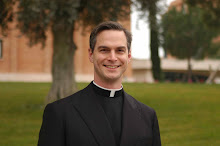
Q: Father John, what is the difference between demon possession and mental illness or depression as you discuss in unit 122 of “The Better Part?”
A: There is no cut-and-dried answer. Here are some basic principles.
Not all psychological difficulties can be classified as mental illness. Some are linked to changeable patterns of behavior or basic human maturity issues. These can be remedied by healthy living, sense of community, human and spiritual formation, the discovery of a mission in life, and other fruitful activities. For example, sometimes mild but persistent depression or problems with anger management are really rooted in patterns of sin that have torn apart a person’s interior balance.
It also must be said, however, that mental illness is a reality. Mental illness goes deeper; it is a dysfunction or disorder rooted in the structure of the personality. Mental illness in these cases is not always caused by direct demonic activity. Many (probably most) times, it is caused by traumatic physical or psychological experiences, or genetic/physiological imbalances, or a combination of any of these factors. In these cases, sometimes medication can help a person lead an almost normal life. Other times, good psychological counseling or treatment (“good” means in harmony with the Christian understanding of the human person) can help a person lead an almost normal life. In some cases, however, the illness is so deep that even medication and sound treatment can only help contain the problem, they cannot completely solve it. This is a life-long cross for the person and their family. Nevertheless, in all cases, from mild to extreme, a healthy spiritual life (prayer, sacraments, Catholic fellowship) should be developed. Discovering God’s love, and learning to live in its’ light, is the only path to full healing for all of us.
We also have to reiterate that demonic activity is real – the Church teaches this clearly, and it is obvious in the Gospels. The devil normally works by stirring up temptations in the areas of the seven deadly sins (greed, lust, anger, sloth, pride, envy, gluttony). Sometimes, the devil and his buddies work in more supernatural ways. This can be through “obsession,” by which a demon will bother a person from outside, causing chronic physical, physiological, or psychological pain. This can also be done through “possession,” by which a demon takes temporary control of a person’s physical and bodily capacities from within (but not their soul). Why God permits these demonic manifestations is a bit of a mystery. In either of these cases (obsession or possession), the devil has to work his damage by disrupting human nature, the normal functions of the human person. This is why mental illness (a natural disruption of human nature) often has characteristics that also appear in the case of demonic activity (supernatural disruption of human nature).
So the question arises, how can I tell if there is some demonic activity going on in the case of someone suffering some symptoms of mental illness? Usually (but not always), there will be something in the person’s past that could provide a clue – they or their family members (parents, siblings…) used to play around with the occult (pagan, new age, wiccan, and other such practices are making a comeback in many parts of modern secular society). Or, they react strangely to holy things – like blessed rosaries, other blessed items, holy water, priests, Mass, the other sacraments and sacramentals, etc.. Sometimes, however, the only clue is that the illness is persistent and doctors seem unable to treat it effectively. If there are some yellow lights in this regard, it is a good idea to invite the person to see the diocesan exorcist (every diocese has one, or is supposed to). The exorcist will talk with the person, ask some questions about the origin and characteristics of the problem, and make a preliminary recommendation. Exorcists almost always also have some dependable psychologists that they work with, to help discern confusing situations. If it is reasonable to suspect that the person is obsessed or possessed, and if the person wants, an exorcism can be arranged. This sounds dramatic, but it is actually normal practice for the Church – every since Christ’s own day.
More distinctions could be made, and a lot more could be said, but maybe those ideas will help clarify some concerns for you. If you like to read, there is an excellent book on the subject called “An Exorcist Tells His Story” by Fr Gabriel Amorth, head exorcist in
Yours in Christ, Father John Bartunek, LC


No comments:
Post a Comment
Dear Friends - If you wish to submit a question to Father John, please see the "How can submit a question" post for guidelines. Your comments and feedback are more than welcome!